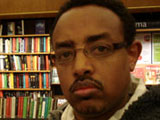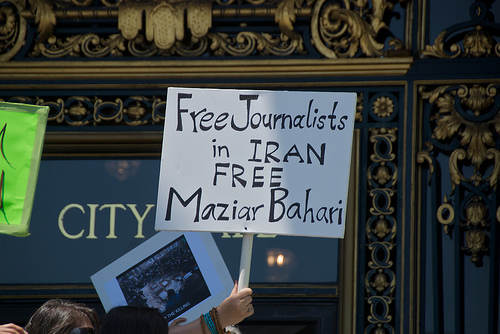Is it Worth the Risk?
by Mesfin Negash / May 18, 2012 / No comments
“Why do writers risk imprisonment or death for an idea?”
How many artists, writers, journalists, human rights defenders, and activists are facing intimidation, prison, torture, and even death as you read this sentence? As I write this, a court in Ethiopia is preparing to give a verdict on political activists and journalists accused of ‘terrorism,’ a trumped-up, politically-motivated charge. At the same time, the Chinese rights activist and lawyer Chen Guangcheng is waiting to hear from authorities about the approval of his travel documents, hoping to escape another round of arrest. Every time a journalist or activist is assassinated by drug cartels on the streets in Latin America, more passionate and courageous fellows join the profession before their fallen comrades are buried.

- Why does a country with her own unique alphabet and long history of writing persist to deny citizens the right to freedom of expression in this era of Expression? No other country in Africa may typify this paradox more than Ethiopia. As Leopold Senghor’s famous collection of poems entitled “Ethiopiques” remained ‘powerful and popula’ so does the source of his intriguing title, Ethiopia, in her own ways. In “Ethiopiques,” I share Ethiopian views on pertinent issues related to journalism, culture and, of course, the overarching subject of politics.

- Mesfin Negash is an Ethiopian journalist living in exile in Sweden. He is one of the journalists accused of “terrorism” in 2011 by the Ethiopian government. The co-founder and first editor-in-chief of an acclaimed Ethiopian newspaper, Addis Neger, he is currently the Managing Editor of Addisnegeronline.com. He is a political science student by training and known for his critical commentaries on significant political and social issues.
One can draw similar examples from around the world. Still the underlying question, usually ignored by the public sphere, is not why are these noble people persecuted, but why do they persist? Is the goal of freedom, respect for human rights, and the betterment of life worth the risk? We cannot fully appreciate the contribution their work makes without valuing the price they pay. Why didn’t they choose other, less risky paths leading to a stable and decent life? Instead they walk the path that leads to danger. The question I would love to see more people ask is “What kind of world would we have without such people?”
They have a different outlook than the majority of us. Is reporting on war, corruption, genocide, and child abuse worth one’s life or security? The obvious answer is no. But why do writers risk imprisonment or death for a novel? Why do whistle-blowers put themselves on the line when the compensation they may get doesn’t outweigh the danger? Why do activists stand up for others while the majority fails to react to a grim reality?
It is an impossible task to fully reflect on the subject. However, I must admit my disappointment when I see the world under-appreciate this reality. In my opinion, the betterment of humanity is in the hands of the few who have the courage to answer these questions more carefully than most.





